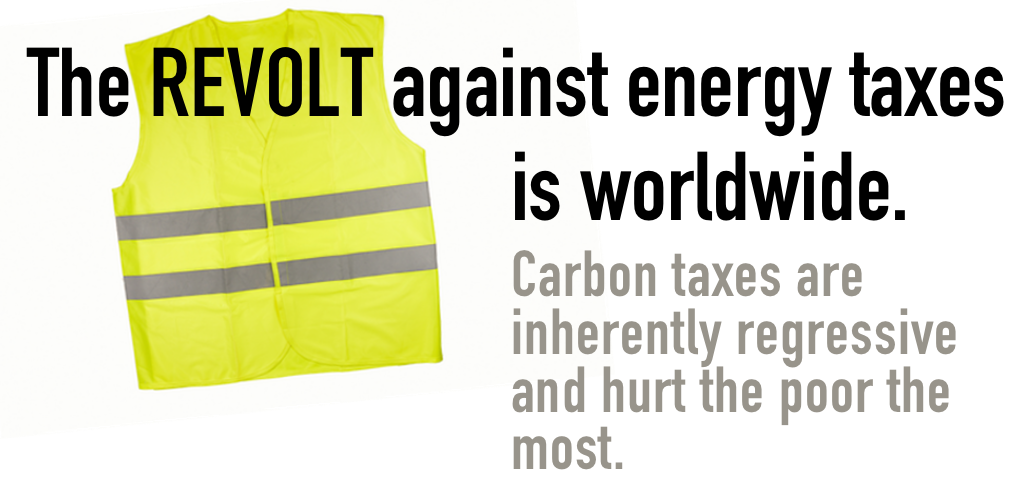
The Energy Tax Revolt is Worldwide
The disconnect is very real. Pollsters have found that 70 to 80 percent of the French sympathize with the statement that climate-hawk president Emmanuel Macron “talks about the end of the world while we are talking about the end of the month.”
The “Yellow Vest” protests in France haven’t come in a vacuum. As The Washington Post observed, “leaders in the United States, Canada, Australia and elsewhere have found their carbon pricing efforts running into fierce opposition.” Or to put it more succinctly, “the carbon tax revolt is world-wide.”
We saw as much here at home in the midterms. In Washington state, voters rejected a carbon tax that asked them to pay $2.3 billion in additional taxes over five years. Voters don’t want to pay more for energy, sacrifice community-supporting industries or jeopardize energy security even if they support reducing emissions.
Part of the opposition to carbon taxies is the distrust that government will use whatever revenue is gained responsibly. Who wants to pay more to fund a government boondoggle?
While some carbon tax proponents want revenue neutral solutions – meaning the tax would be offset by tax cuts someplace else – many proposals would redistribute tax revenue and push it towards renewable energy. With either approach, government will be tasked with picking winners and losers. And since fossil fuels still provide more than 80 percent of the energy we consume, nearly everyone will be losing.
Poorer people will lose the most. Carbon taxes are inherently regressive. They ask more of the poor than the rich because the poor spend a larger percentage of their income on energy services. As the U.S. Energy Information Administration reported earlier this year, one in three American households already faces challenges in meeting its energy needs. While the regressivity of carbon taxes can be softened depending on how revenue is redistributed, the favorite idea of climate hawks – using carbon taxes to promote renewable energy – is the most regressive approach of all. It’s also proving to be an incredibly ineffective way of reducing emissions.
New research has found that handouts to renewable sources of energy are achieving precisely what their critics feared most – they’re a windfall for renewable energy developers but do little to cut greenhouse gases. The Organization for Economic Cooperation and Development, better known simply as the OECD, revealed as much in a new study that concluded there’s weak correlation between renewable energy quotas, high-net metering prices and emission reductions. The German Energiewende is case in point.
Despite Germany spending tens of billions of euros to subsidize wind and solar power and forcing the highest electricity prices in Europe on its consumers, emissions are barely budging.
If voters don’t want to pay more for energy, if carbon taxes are a political dead-end and throwing money at wind and solar power is proving ineffectual, why do these ideas remain the centerpieces of climate action? It’s a question a generation of politicians need to answer. If they can’t, voters are proving more than capable of answering it for them.
- On December 12, 2018
